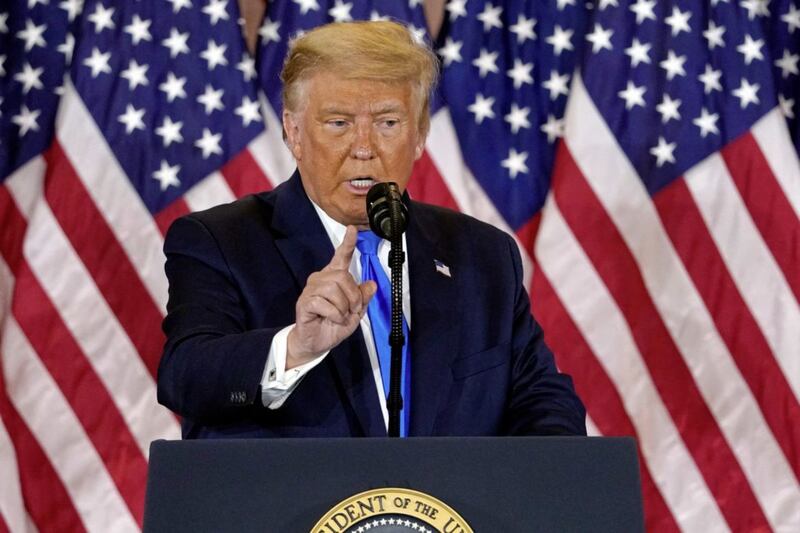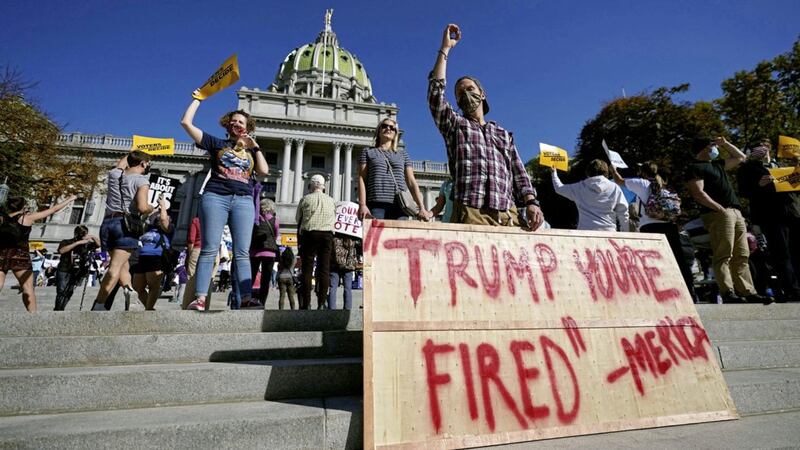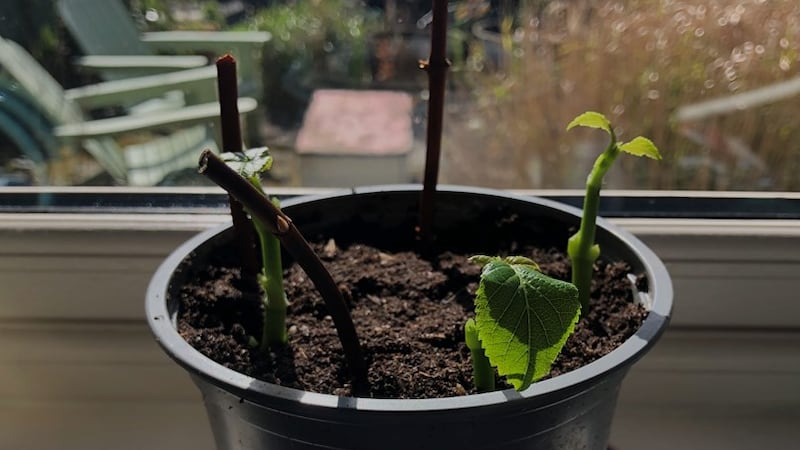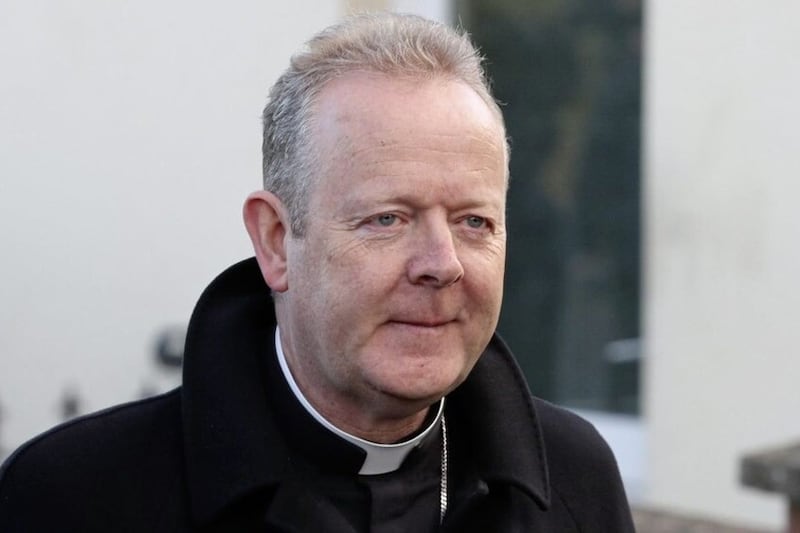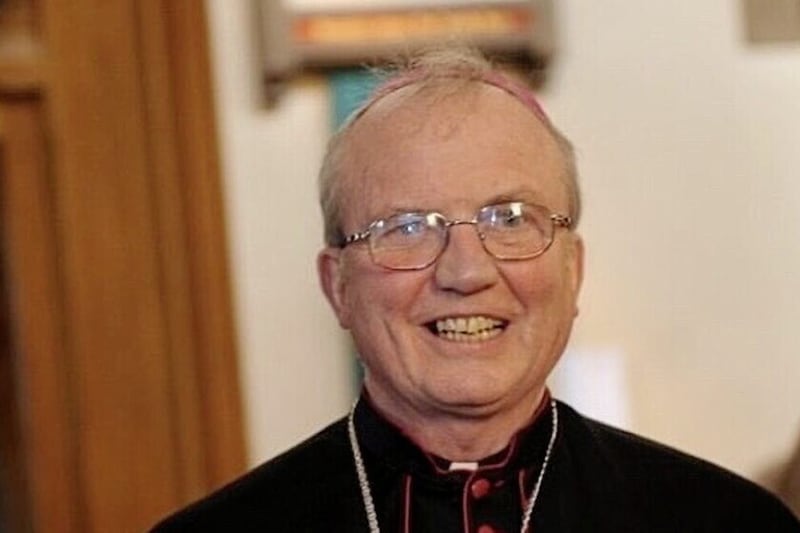IT is now 35 years since crowds began to visit Ballinspittle in Co Cork, drawn by reports that a statue of Our Lady had moved spontaneously.
I remember one commentator saying that we ought not just to be asking whether the statues were moving, but also wondering why people were moving in such numbers to see the statues.
We have all been drowning in reports of an election race between two septuagenarians, thousands of miles away.
I have been trying to make sense of why the US elections have inspired such passion there - and why many people in Ireland appeared to have been fired up by this faraway political reality show.
The electoral race has been portrayed by many as a clash between two cultural warriors.
We are supposed to go down the theatrical Hollywood route of pitting good against bad, the hero of the forces of light fighting the one who represents the empire of darkness.
As in a gladiatorial computer game, the language is about victory.
And now that result is clear, commentators still appear to be in one camp or the other.
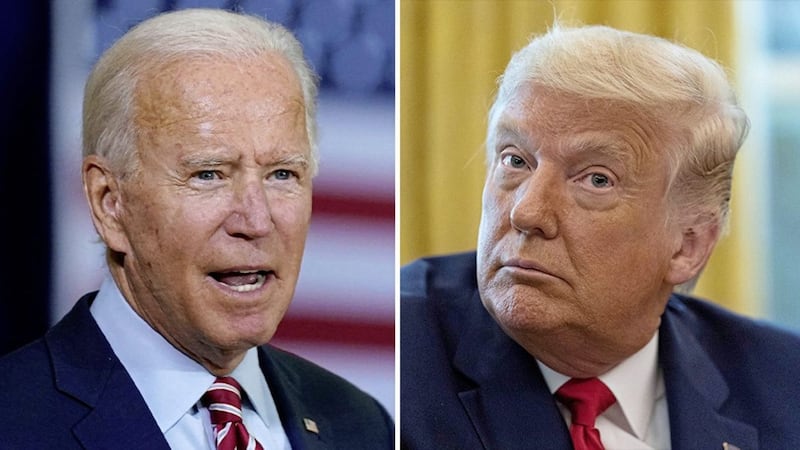
Either the truth has vanquished darkness and the great march forward continues; or the evil one has got the upper hand and the fight must go on.
How do I read this?
I was a teenager in the 1960s. I remember it as being a very optimistic time to be young.
The war years were behind us and we could face the future with confidence. The age of revolution - sexual and political - was just beginning to touch Ireland when I went to university in 1968.
Many people have made progress from the changes that have marked the last 50 years.
But the 70 million people who passionately voted for Donald Trump suggest that, for all those who want to defend what they see as the benefits of liberalism and globalisation, there are huge groups who see themselves as losers.
Somebody pays the price when we sacrifice social capital and family on the altar of the right of the strong to choose.
As the dust of battle settles in Washington, we need to keep asking why 70 million people were moved to vote for 'the Donald'
When promoting individualism is more morally virtuous than the common good, we all lose something precious.
When politics becomes a giant marketing battle for power, ideas and idealists take a back seat. When elephants fight, the grass gets trampled.
It is tempting for any elite in Church or State to see their critics as something like a "basket of deplorables", to quote Hillary Clinton.
It is tempting simplistically to portray the past as irredeemably awful or great - and to view the promised future as blissful or suicidally shocking.
That level of partisan arrogance or theological blindness does little to build civic hope.
Opponents may not be burnt at the stake - but, but when we frame politics within the framework of a battle, dissenters tend to be condemned as dangerous reactionary heretics.
And so, I ask myself whether we need to recalibrate the unquestioned headlong crusade to defend the unbounded freedom of every individual to define their world.
Donald Trump may well have exploited existential fears in the interests of his personal aggrandisement.
But he has articulated a deep-seated anguish from those who see themselves as losers and their society as impoverished.
Every empire creates victims - and is ultimately the author of its own downfall.
When a philosophy assumes infallibility for itself, it tends to savage those who question its hegemony.
This is the political environment, found in many countries, which Pope Francis addressed in Fratelli Tutti.
He invites us to discover a fraternal, listening model for resolving differences - and special attention for those who feel left out and unheard.
He calls for a new form of bridge-building politics, not "the illusion of communication" or "globalisation and progress without a shared roadmap".
And he implies that Christians must be patient peacemakers and not raging culture warriors.
So, as the dust of battle settles in Washington, we need to keep asking why 70 million people were moved to vote for 'the Donald'; and then we might find the truth behind the fake news.
